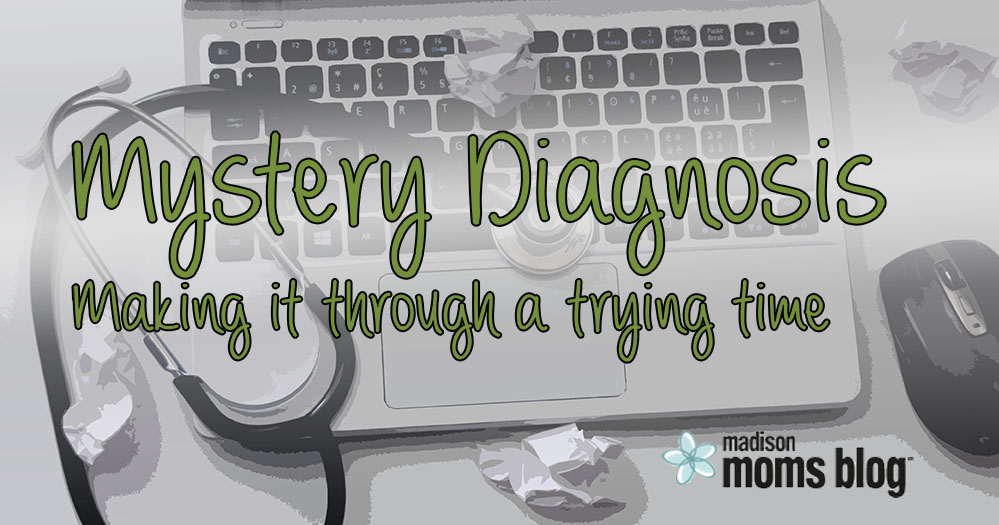Being sick is no fun. It throws off your daily routine and is a general drag to get through. Medications, lotions, and potions show up in your medicine cabinet, then go unused (and safely discarded!) Life goes on and you return to normal.
Sometimes it’s not so easy. Something isn’t right. You, or your child, keep having the same issues come up. Referrals are made and specialists are called in. Maybe those doctors struggle to find the right diagnosis, too. At this point, none of the cooks in the kitchen can find a recipe with all of your ingredients.
I know this pattern all too well. Years went by while specialists shrugged their shoulders and sent me on to someone else who might have answers. By the time I encountered this same pattern (in a milder version) with both of my children, I had developed a set of strategies to cope. I used my experience to help guide my family through what can be a maddening process.
1 – Knowledge is key.
When we’re desperate for answers, these days we turn to… the internet. WebMD is notorious for freaking out the masses, and I will repeat the proverbial warning to NOT diagnosis yourself. But I’ll openly admit, I’ve spent countless hours on Wikipedia learning about related symptoms, conditions, and body processes which has made the difference. Just remember research in moderation.
If you could use some peer support (and have a rough idea where your diagnosis might be headed) there are great Facebook groups to join, all brimming with personal experience and advice.
2 –There’s a saying in medicine: when you hear hoof beats, don’t think zebras.
Most people end up having a common illness… that’s how probability works… so don’t immediately pigeonhole yourself with something rare. Your provider will likely start out eliminating the usual suspects, so have patience with the process. Even if it feels like a waste of time, knowing what isn’t wrong is just as useful.
3 – Keep open to all possibilities.
On the flip side, when an initial diagnosis doesn’t seem to fit, don’t forget there are still zebras out in the wild. Tuck away a little knowledge (not an obsession-worth) of the more rare possibilities in your back pocket. It can help direct your questions, making the most use of your appointment time window. Hopefully, you won’t need it. Worst case, it can prepare you to absorb an uncommon, hard-to-pronounce diagnosis. Best case, you gain bonus knowledge for when you’re on a game show someday.
4 – Stay organized.
Write down dates of when everything started, no matter how menial. You never know when the oddest coincidence turns into to the most important puzzle piece. (This means you may need to check your modesty at the door, at least for a few minutes…).
5 – Walk into each appointment with a clear goal in mind.
Jot down a few notes and don’t be afraid to reference them during the appointment. The doctor will appreciate that you’ve thought about this ahead of time and it might cut down the number of questions that pop into your head afterward.
6 – Be firm, but always be kind.
You are your own best advocate, so make sure you are being heard. Yet, be mindful of your tone. Getting frustrated with the doctor won’t magically make an accurate diagnosis pop up on your chart! Having a good rapport will go a long way. You might not get answers today, but you can bet that you’ll stay on their radar.
7 – Know when to call it quits and ask for another opinion.
If it feels like the flow of communication is strained between you, ask if there is another provider within the practice you can see instead. Some places have a strict policy against this, but it’s still easier to ask than to jump into the (sometimes) arduous task of transferring records and getting new referrals. If you do switch, give priority to providers that actively follow the latest research.
8 – Long booking times might be unnecessary.
If it means you’ll get to see the sole renowned expert in a thousand mile radius, fabulous. But, I find it rare that a place booking 12 months out (or more) is worth it. Put your researcher’s cap on and start calling around. Even if an office is out of network, exceptions can be made. If you find a provider with a more reasonable wait, ask your insurance to consider your situation and pre-approve the consultation.
9 – In the meantime, resume whatever normalcy you can muster.
The mysterious illness at hand may call the shots on much of what you can do, but develop a new normal to keep some sanity. This phase is only temporary; We’re switching-it-up until a more effective treatment comes along. Rest as much as your body needs to, but do get up and get dressed every day!
10 – I know it’s hard, but do your best to ditch worry.
This is important, especially when something so big and life-changing is staring you down. Now is your chance to read about something you’ve always wanted to learn about… do yoga… meditate… find an amazing new podcast… make a craft… call a friend… binge Netflix… play a board game with your kids… anything to keep your mind moving.
Kudos if unwavering optimism is your thing; This process should be a piece of cake for you. For the rest of us, It’s a one day at a time, cliché deal. I hope you get answers soon, I really, really do. Waiting is the worst. So until then, stay prepared, informed, and ruminate on wise words:
“Worry does not take away tomorrow’s troubles. It takes away today’s peace.”













